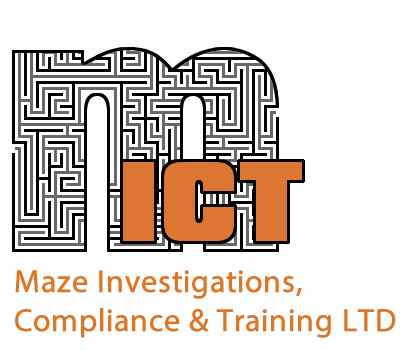One rule for the regulated and one rule for the regulator
/HMRC who regulate a number of Financial Institutions such as MSBs and also DNFBPs such as Estate Agents are quick to criticise and keen to issue fines to show they take their duties seriously. Indeed their predecessor the Office of Fair Trading issued a whopping fine of £169,652 to Jackson Grundy an Estate Agency firm based in Northampton.
HMRC are also issuing fines for breaches. But let’s be clear they are procedural breaches, the miscreants have failed to tick the boxes. So we can assume that the regulator, which is such a stickler for detail, is itself a paragon of virtue, hardly!
The inspection teams of the regulators are focused almost entirely on inspecting compliance with the Money Laundering Regulations 2007, and so they should be, after all that is their remit. So during their visits they want to know about such compliance.
So why am I hearing horror stories of inspectors demanding to know how many, and of what type of SARs are being submitted by the Estate Agent or MSB being visited? Or are asking to see the SARs, though to be fair not all ask for them. What relevance has the number of SARs submitted got to the regulator? Apart from anything else it is outside their role. Even if told, how does it help them understand the agent’s compliance with the ML Regs. Are the inspectors qualified in AML/CFT, and on that point how many of them are trained Financial Investigators?
The current head of HMRC (her retirement has been announced for April this year) is Dame Lin Homer. HMRC have only managed to secure one prosecution from a list of 6,800 secret Swiss bank accounts, linked to British nationals, which were provided in 2010 by French authorities. (Sky News). A situation for which they have been heavily criticised.
Now unless I have missed the point, the accounts in question are secret to evade tax. Tax evasion is a criminal offence and one which is counted as a predicate offence for the purposes of money laundering. Therefore it is fair to say that anyone involved in such behaviour could be considered guilty of an offence under Section 327 and/or Section 328 of the Proceeds of Crime Act 2002. So why have there been no arrests or court cases? Is it just easier to punish the regulated for procedural breaches than to do your job? Perish the thought. Perhaps training up some of those (visiting the regulated sector to ensure compliance with the Regulations) as Financial Investigators and transferring their role to investigating money laundering could help.
One last point, if HMRC are not pursuing more of the 6,800 bank account holders for money laundering, are they guilty by so failing of the offence of Entering into an arrangement (Section 328). The sin of failure to act (omission) as opposed to the sin of active participation (commission). Just a tongue in cheek thought but is that not what the regulated sector are being punished for?
